Post
A catch
Save a catch to start your fishing logbook. You will be able to to share it with the community if yo want!
A fishing trip
Post an ad to go fishing with other fishermen
Save a catch to start your fishing logbook. You will be able to to share it with the community if yo want!
Post an ad to go fishing with other fishermen
Share a thought, a question with the community
My favorite cities
×Join our 664 fishermen and our 1 cofisherman in Brundish-Street in Suffolk. The fishing forecast is currently 2.4. The most caught fishes here are brown trout, the common carp, the crucian carp and the rainbow trout. Come try the most famous fishing techniques like the fishing for pike with soft lure, the bolognese fishing, support fishing for black sea bream or angling - using natural bait.
Our fishing forecast of Brundish Street indicates the best time to go fishing in this city.
Brown Trout
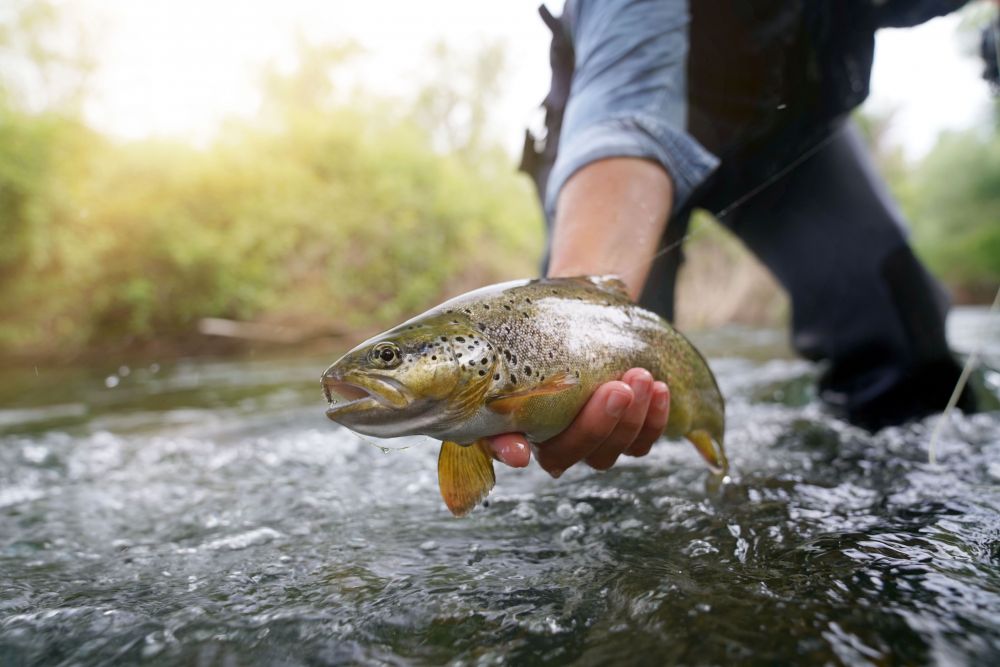
The Brown Trout belongs to the Salmonidae family. According to the location, the adult size varies from 25 cm to 80 cm for 300 to 800 g. It lives for 3 to 6 years. The spawning period starts in October and end in January. The female can lay up to 4000 eggs. The fishing period is open from the second Saturday of March until the third Sunday of September. This fish is not hard to catch but the fishing needs complex skills. Depending on its environment, the brown trout have a very variable color, but the brown trout, as its name shows, is rather brown with scattered black and red spots, depending on the spawners. It has a certain mimicry according to the bottom of its living spaces since the dominant brown will become a green dress if it lives close to the banks where yellow and even sometimes silvery white will mix. It has a "useless" adipose fin between the dorsal fin and the caudal fin. The head is tapered, strong and has a powerful jaw. Its back is a pretty black or night blue.
Brown Trout is a famous fish you can catch in Brundish Street.The Common Carp
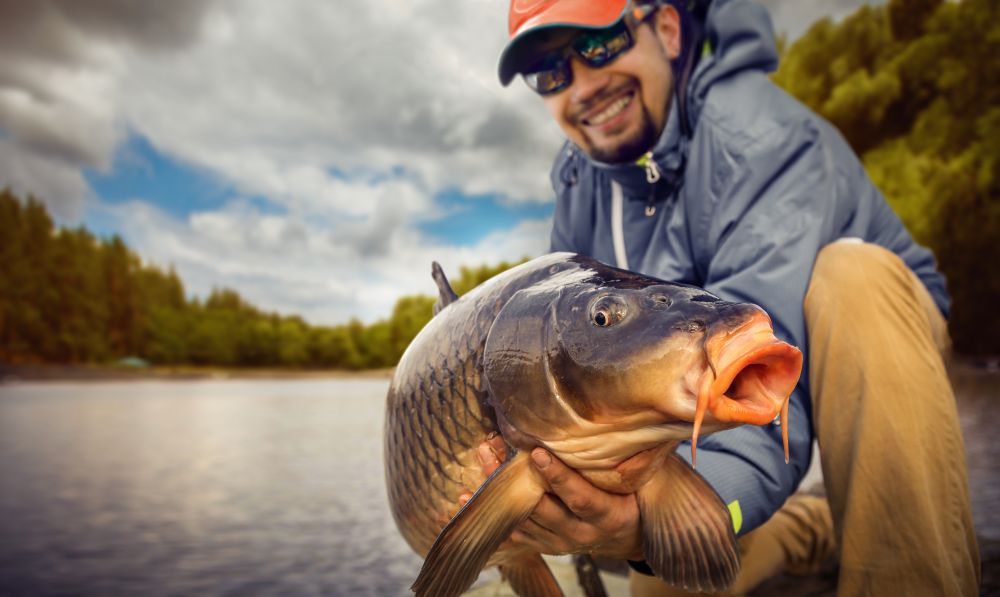
The Common Carp belongs to the Cyprinidae family. Its average size is 40 to 60 cm (up to 1 meter for some specimens) with an average weight of 6 to 8 kilos (up to 37 kilos for some specimens). It can live up to 20 years in the wild. Common carp breed from spring to summer. The female lays 250,000 eggs per kg of weight. Carp can be fished all year round in the 2nd category rivers! It is a massive fish, green in color (except the koi). Its head is conical, its mouth is protractile, it has no teeth but has 2 pairs of barbels. Its growth is fast; it exceeds one kilo in 3 years. The fins are strong and grey, except for the pelvic and anal fins, which are slightly orange.
The Common Carp is a famous fish you can catch in Brundish Street.The Crucian Carp
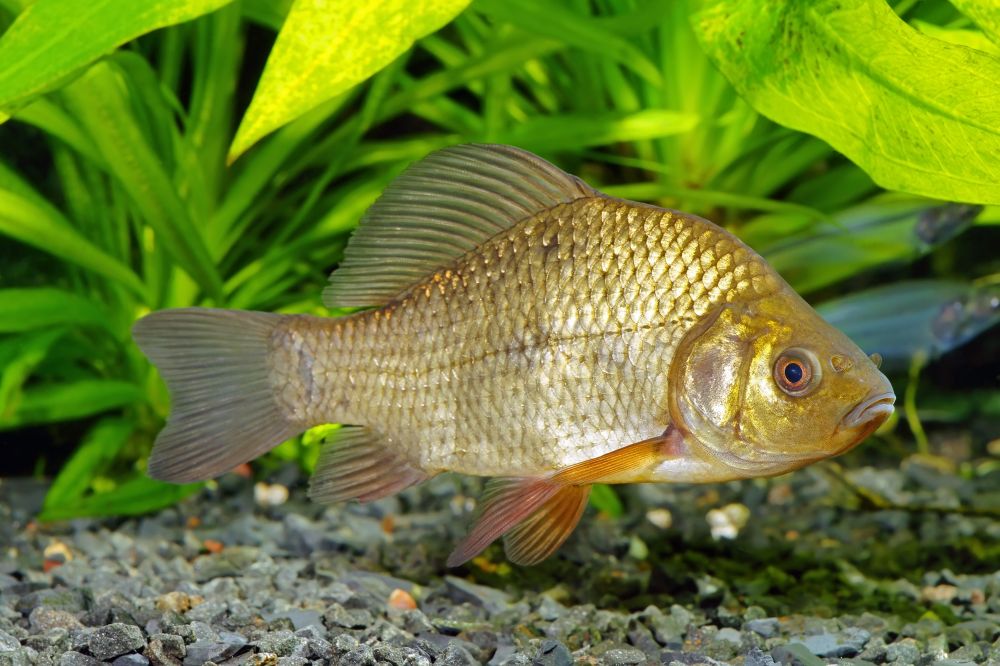
The Crucian Carp belongs to the Cyprinidae family. Its average size is 45 cm for 3 kg. It can live up to 15 years. It breeds from Mai to June. The female lays up to 300,000 oocytes. It can be fished from spring to fall. The Crucian carp is ovoid, stocky and laterally compressed. The protruding back gives it a high body. The most common specimens have an average size of 15 cm and a weight of about 250 g, but they can reach more than 50 cm and a weight of 4 kg. The head, small and conical, has no barbels. The pectoral and ventral fins and the anus are slightly rounded and have a reddish colour. The dorsal fin is characterized by a convex line. Finally, the caudal is slightly indented, and has 20 soft rays. Large scales cover the body and 31 to 36 scales run along the lateral line. Overall, it is greenish in color, dark on the back, with golden reflections on the sides and lighter on the belly. A black spot at the base of the caudal fin characterizes juveniles of this species. This stain disappears with age.
The Crucian Carp is a famous fish you can catch in Brundish Street.The Rainbow trout
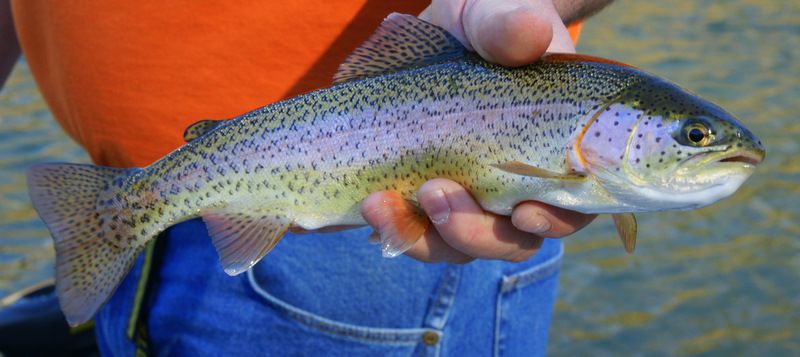
The Rainbow trout belongs to the Salmonidae family. On average, it measures 35 to 70 cm and weighs 500 g to 6 kg. In this species, a maximum lifespan of 11 years has been observed. Rainbow trout reproduce naturally from late March to early July. Fertility is about 2000 eggs per kg. Depending on the region, it is fished from March to September. Rainbow trout have a streamlined, laterally compressed and slender body. It has a small head and a slightly split mouth. Its body is arched at the level of the dorsal fin. It should also be noted that there is an adipose fin common to all Salmonids. Its scales are small and thin. Generally, the entire body is punctuated by small black spots, many on the back and sides, as well as on the dorsal and caudal fins. The back is olive green and the sides are silvery. The color of the belly varies from white to yellowish. Nevertheless, the general coloring of the body varies greatly depending on the age, habitat and physiological stage of the fish. The particularity of rainbow trout lies in the presence, all along the body, of an iridescent longitudinal band, predominantly pink. During the breeding season, the female is generally rounder because of the ovarian volume, while the males appear to be more elongated. They become darker and their colors more vivid.
The Rainbow trout is a famous fish you can catch in Brundish Street.The Lesser Spotted Dogfish
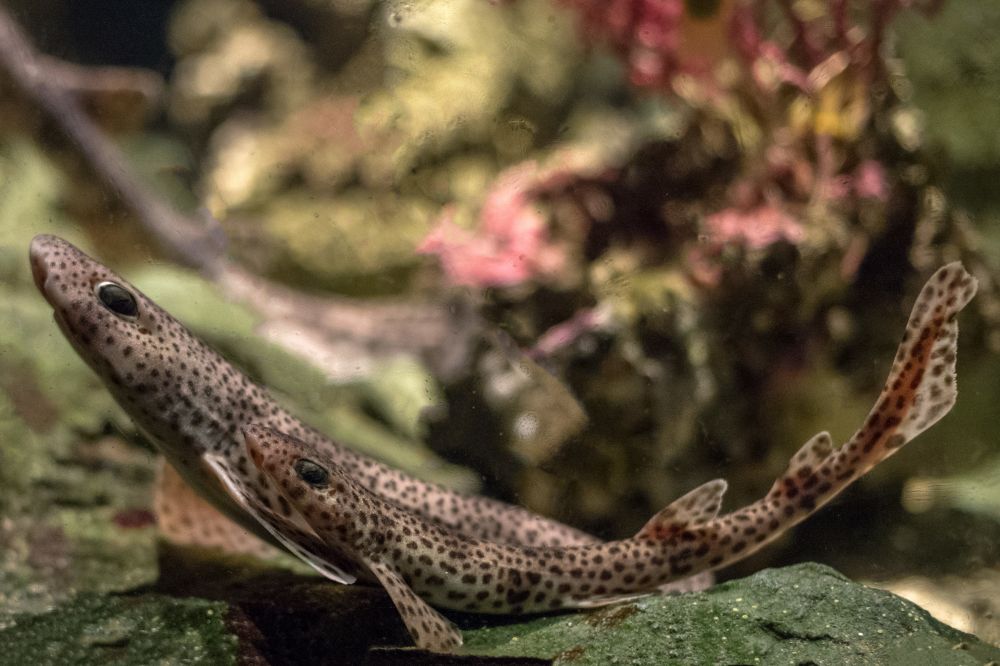
The Lesser Spotted Dogfish belongs to the Scyliorhinidae. It has a height of about 80 cm in length and a maximum weight of 5 kg. It can live up to 8 years. It breeds from November to July. The female lays about a hundred eggs. It is fished in winter. The lesser spotted dogfish is a small spotted shark with a rounded snout. The spots are small, numerous, brown to blackish-brown on a light beige to red background, the belly remains light. Five gill slits are located just behind the black and oval eyes. As with all species of the Scyliorhinidae family, the first dorsal fin D1 is located behind the pelvic fins; the second dorsal fin D2 is located just behind the anal fin. The distance between the 2 dorsal fins D1 and D2 is greater than the length of the base of the anal fin. The nasal valves are contiguous.
The Lesser Spotted Dogfish is a famous fish you can catch in Brundish Street.Our fishing forecast of Brundish Street indicates the best time to go fishing in this city.
Our fishing forecast of Brundish Street indicates the best time to go fishing in this city.
Our fishing forecast of Brundish Street indicates the best time to go fishing in this city.
